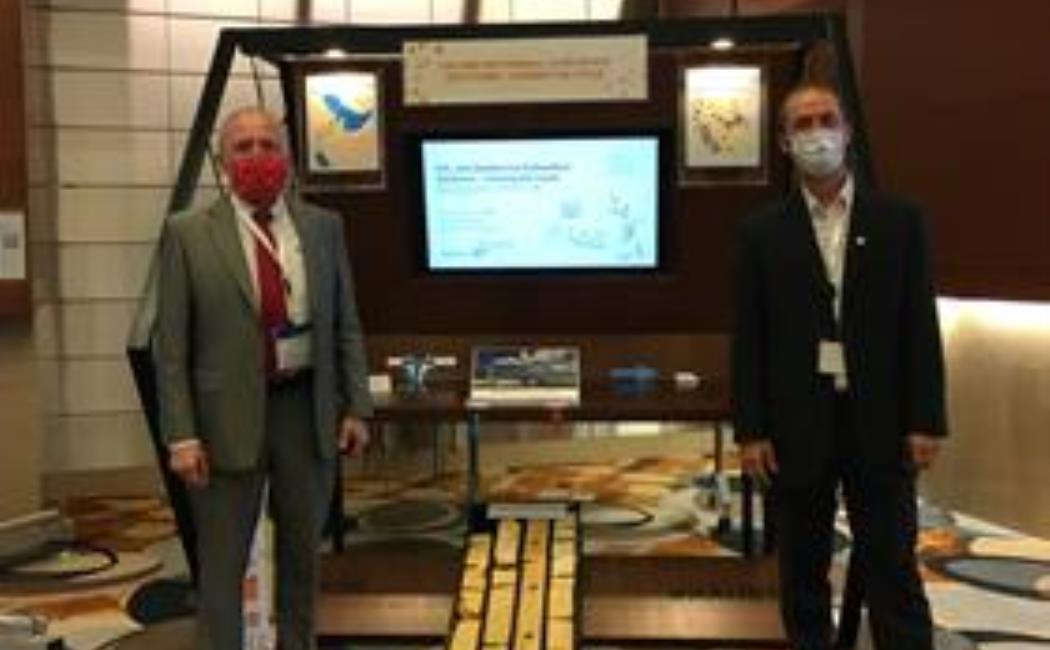.jpg?sfvrsn=39330263_0)
.jpg?sfvrsn=39330263_0)

17 January, 2021
In Dec 2020, KAUST hosted the KAUST Circular Carbon Initiative Expo. During the event, exhibitors showcased their research into Circular Carbon Economy (CCE) technology solutions. Prof. Volker C. Vahrenkamp and Prof. Thomas Finkbeiner, from Ali I. Al-Naimi Petroleum Engineering Research Center, exhibited their work on CO2 and Geothermal Subsurface Solutions – Closing the Cycle. We caught up with Prof. Ahmed and Prof. Finkbeiner for a perspective on their work.
Describing their work on CO2 and Geothermal Subsurface Solutions – Closing the Cycle, Prof Finkbeiner said: "Our contribution to the Circular Carbon Economy falls in the domain of geo-based solutions. In particular, we promote the development of low-enthalpy geothermal energy systems in conjunction with CCUS (Carbon Capture, Utilization, Sequestration). Such low-enthalpy geothermal systems that include CO2 have the capacity to produce electricity in addition to driving desalination plants as well as district heating and cooling systems. This will save appreciable amounts of electric energy that otherwise requires burning oil and gas. In this context, geothermal energy provides baseload 24/7 alternative, sustainable, renewable, clean energy while offering utilization of sequestered CO2. In the long term, we envisage a holistic concept that includes zero carbon emission by point source capture, subsurface re-injection for storage as well as re-production for geothermal applications. Hydrocarbon facilities utilized for the production of zero-emission fuels (H2, NH3) could be the point-sources for CO2 to feed the geothermal cycles."
Prof. Shehab's team presentation drew from their work on Cities:OS, a platform to simplify the development of physics based digital twins at city/country scale.
The presentation highlighted the significance of agent based models and the vendor agnostic IOT platform. "Agent based models of city assets and residents enable testing of policies and plans in a realistic virtual setting. The vendor agnostic IOT platform integration capability enables improved data driven model development, operation and planning across city sectors. The proposed multi-sector simulation and interactivity platform will enable us to REDUCE energy consumption and CO2 generation at city scale."
For more information on the KAUST Circular Carbon Initiative, please visit:
https://www.kaust.edu.sa/en/news/answering-the-call-for-carbon-management
https://cci.kaust.edu.sa/about/five-research-thrusts